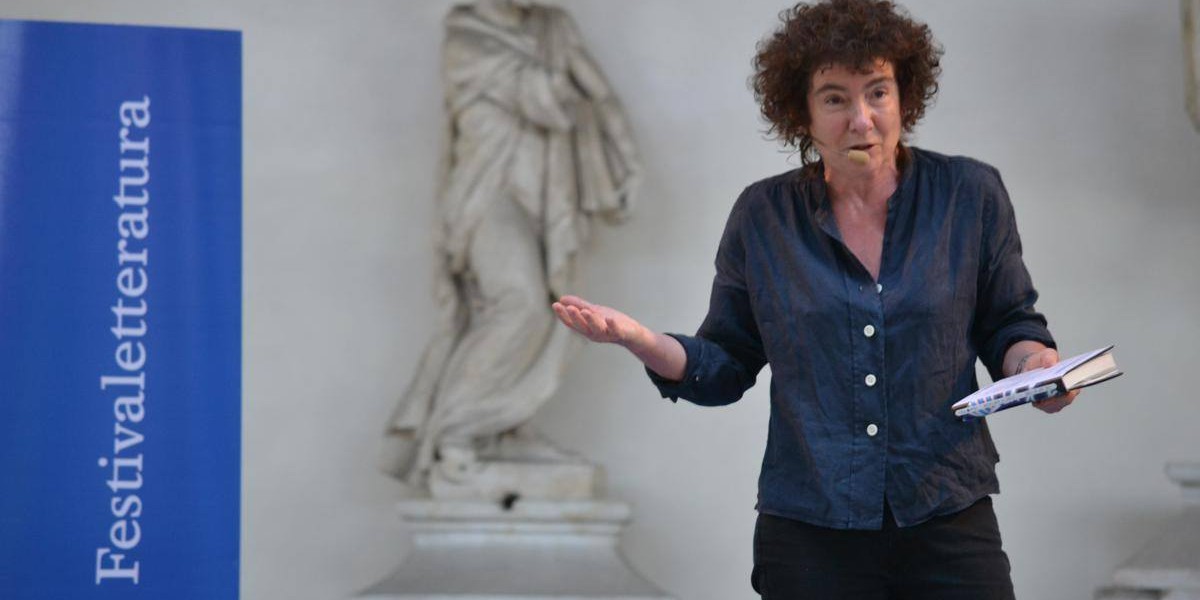
“I am a missionary of art and love. A bit like Tosca.”
Jeanette Winterson’s event at Palazzo San Sebastiano was positively Shakespearian in a number of surprising ways. Just like a play held at the Globe in the early 1600s, the event was held in the open air. It was held at 15:30 and, curiously, this was also significant given that, due to the lack of electricity in Elizabethan England, shows were always held in the afternoon (14:00 in winter, 15:00 in summer), a custom that led to the creation of what we now know as a matinee performance.
The first half of the event was accompanied by the sounds of screeching tyres, pouring rain and Cyndi Lauper’s Time After Time as the author gave an animated and dramatic reading of the first chapter from The Gap of Time, her “cover version” of Shakespeare’s The Winter’s Tale, which has recently been released in Italy. Her lively performance reflected her view on the proper way to experience Shakespeare’s work. When asked by an audience member which of the Bard’s play she should read, Winterson responded, “I wouldn’t read Shakespeare if I were you. Shakespeare wouldn’t want you to read Shakespeare.” For her, the only way of truly getting to know his plays is on the stage, as his contemporaries would have experienced them.
Shakespeare was no stranger to cover versions himself. As Winterson stated, he never invented his own plots, he took them from other sources or reworked his own. The Winter’s Tale came at a late stage in Shakespeare’s career, his great tragedies, comedies and historical plays were behind him. As such, here he went back and reworked the first act of Othello, changing some details along the way. Hermione, like Desdemona before her, does not make it to the end of the play with her life but there is some hope represented by the presence and survival of the lost child, Perdita.
Winterson and Shakespeare are in what could be termed a long-term relationship. During her youth, she went to the library in Accrington and embarked on a project to make her way through the authors in the collection in alphabetical order. She only got to M, but Shakespeare stood alone outside of this experiment, reading his work was as normal a daily act to Winterson as getting dressed.
Each day until she left home at age 16, she either had The King James’ Bible read to her or she read it herself (her parents wanted her to be a missionary, and Winterson maintains that she is one, albeit “a missionary of art and love. A bit like Tosca.”) Having been written in the same period, the common complaint about the inaccessibility of Shakespeare’s language was not a problem in her childhood home. Winterson laments the decision of “well-meaning idiots who thought the working people couldn’t understand the language of the Bible and simplified it”, doing away with 400 years of linguistic heritage in the process. If they could read the Bible, they could read Shakespeare.
Winterson expanded on her talk on Saturday morning in an interview with one of our volunteers.



